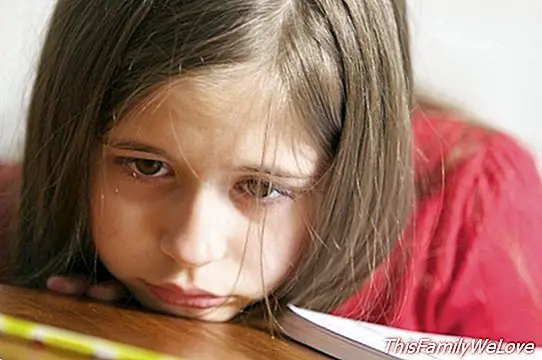New findings on the origin of depression in children

Childhood is usually a time of joy and fun. The first years of a person in this world are usually quiet, however there are times when it is not. There are minors who, due to various problems, suffer from diseases such as depression that we believe is restricted to the world of adults.
Understand how the depression in children it could help to help the little ones in these cases. For this reason, the findings are important, such as those obtained by a group of researchers from the University of Washington in St. Louis, United States. These scientists have tried to find out if it is possible that the same mechanisms that trigger these problems in adults and adolescents also do so in children.
Reward process
One of the effects of depression in adolescents and adults is the alteration of the reward circuit. People with this type of problem do not feel the same way when, after an effort, they get something good. A healthy person after getting something positive, tries to work to obtain it again and for that he is more motivated and eager to improve himself.
However, people with depression do not feel the reward and therefore this motivation does not appear, so they are left in a state of sadness and not wanting to try. Could it happen the same in young children? To try to answer this question, the researchers analyzed the cases of 84 children under 3 to 7 years old. Brains were analyzed to respond to their moods.
This group of children was proposed a computer game while analyzing their brains. In this game they had to choose between two doors, one gave points and the other left. In case of getting a good result, they could choose a toy while otherwise they were left without a prize. Children without depression were very enthusiastic every time they chose well and were frustrated every time they scored.
On the contrary, the depressive children showed little cerebral activity in both cases. Whether they failed as if they had a good score, the reward circuit remained the same. They were not even shown more anxious for trying hard and choosing the door that could give them a toy.
Early treatments
The fact of having discovered that the process of depression in minors is similar to that of adults can help initiate treatments from early ages. Initiating therapies done by the elderly in young children with this problem could significantly improve their quality of life over the years.
The next step of the group of researchers will be to find out which treatments work best in the case of children. To do this, they will copy therapies used in adults with depression and try to find out their success in the minors by assessing whether the reward circuit has changed in some aspect and if there is a greater motivation than in the previous study.
The researchers also explain that search motivations in children it could help. Finding something that makes them strive and get what they want can cause the reward circuit to reactivate, causing one of the causes of depression to disappear, thus improving the mood of the children.
Damián Montero




